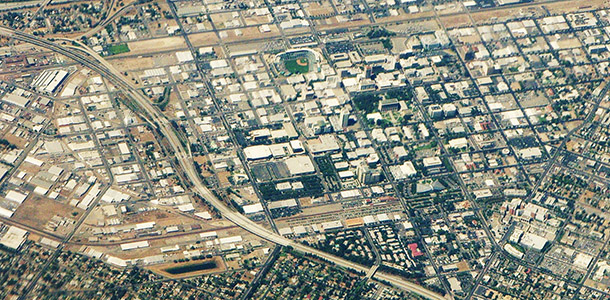
(Photo Credit: Ron Reiring/Flickr)
While the new federal tax law is often criticized for benefiting the wealthy, one significant provision is designed to encourage community and economic development where it is needed most.
“Opportunity Zones have the potential to be the largest infusion of private capital into disadvantaged communities in decades,” said CA Fwd Co-Chair Lenny Mendonca, who details the zones in a commentary with Laura Tyson, the former chair of the President's Council of Economic Advisers. Mendonca and Tyson urge states to enact reporting rules that encourage opportunity zone investors to create meaningful economic opportunities for low-income residents.
Because these zones are potentially so impactful in helping reduce poverty, bolster economic security and improve upward mobility, CA Fwd and many of its partners in the California Economic Summit have encouraged the Brown Administration in a letter sent today to seek an available 30-day extension for providing recommendations where these zones should place to the federal government.
Because of the relatively tight time frame for identifying the neighborhoods that will receive this designation, CA Fwd believes it is unrealistic to expect community business, civic and government leaders to provide feed by a March 15 deadline.
Regrettably California has more impoverished neighborhoods that can be designated Opportunity Zones under the federal law. Thus, identifying those neighborhoods that can most benefit from investment in their community is worth getting right.
Among of the considerations that CA Fwd pointed out in its letter to California Department of Finance Director Michael Cohen include:
- Making sure to include tracts that community and regional plans have targeted for job-related development and where private capital has the potential to increase media wage or higher employment opportunities
- Including tracts that community and regional plans have targeted for affordable or workforce housing development near jobs or transit
The letter also encourages the state to reconsider some of its initial recommendations. The letter argues that neighborhood tracts that are in the path of development where additional public subsidies are not needed to attract capital (for example the south side of downtown San Francisco) should not be among the census tracts the state recommends.
“Opportunity Zones are a powerful incentive to attract private capital into neighborhoods where new investments can produce higher wage jobs and affordable homes, which are critical to elevating disadvantaged Californians,” said Jim Mayer, president and CEO of CA Fwd. “That private investment will go even further in restoring upward mobility if the Legislature enacts more of the recommendations in the Economic Summit's Roadmap to Shared Prosperity.”
CA Fwd expressed its willingness to help the Brown Administration develop methodologies and approaches to formulate how to best inform policies going forward.
Even with the 30-day extension, the Department may not have time for adequate consultation with all communities with proposed zones. Nevertheless, CA Fwd strongly recommended that the Department seek affirmation from all local governments that the census tracts in the final recommendation are aligned with their economic and community development goals and are in need of the additional public subsidies that Opportunity Zones will provide.
In addition to refining the inventory of selected census tracts, this additional consultation and evaluation will support the next steps in this process, including crafting state conforming legislation that can increase the chances that Opportunity Zones reduce poverty and increase upward mobility.
This spring, CA Fwd will convene financial, philanthropic and economic development leaders to begin formulating how to best incorporated Opportunity Zones into their economic and community development plans.
To read the full letter, click here.

